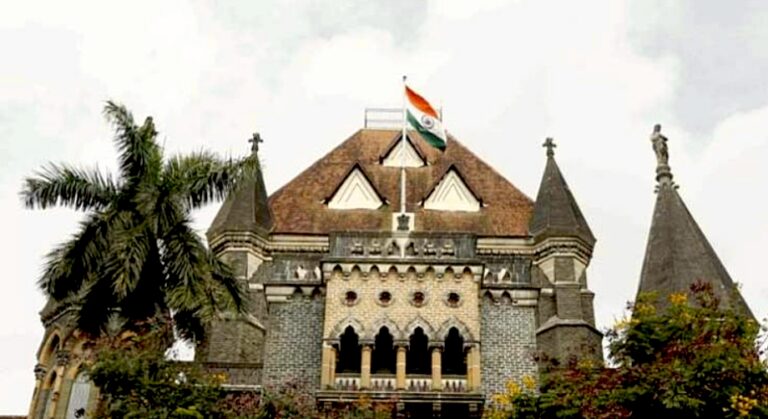The Bombay High Court in Gateway Terminals India Pvt. Ltd. v. DCIT & Ors. (26 August 2025) has delivered a significant ruling on the scope of deductions under Section 80-IA of the Income-tax Act, 1961. The issue before the Court was whether interest earned on fixed deposits, which were mandatorily maintained for fulfilling obligations under a concession/licence agreement and pursuant to High Court directions, could be treated as income derived from an eligible business for claiming deduction under section 80-IA. The Court held that such deposits were not a case of surplus fund investment, but were inextricably linked to the operation of the eligible infrastructure facility. Accordingly, the interest thereon, as well as interest on TDS refunds arising from the eligible business, qualified for deduction under section 80-IA.
Case Details:
Court: Bombay High Court (Division Bench)
Case: Gateway Terminals India Pvt. Ltd. v. DCIT, Raigad & ITAT, Mumbai & Ors.
Case nos.: ITA No. 1139 of 2021; WP No. 4963 of 2021
Bench: B.P. Colabawalla & F.P. Pooniwalla, JJ.
Reserved: July 1, 2025 | Pronounced: August 26, 2025 (Mumbai)
Result: Appeal allowed; ITAT order partly set aside; deduction under s. 80-IA allowed on interest from bank FDs and on interest on TDS refund.
Snapshot / Why this matters
The Court held that where fixed deposits are compelled by business necessity (not a mere parking of surplus), the resulting interest has a direct nexus with the eligible infrastructure business and is deductible under Section 80-IA. It also extended the same reasoning to interest on TDS refunds tied to the eligible operations.
Material facts
- Assessee operated and maintained a container terminal at JNPT—an eligible “infrastructure facility” under s. 80-IA.
- Interest arose from:
- FDs created to meet mandatory obligations under the JNPT licence (e.g., planned replacement of cranes)—failure could even lead to licence revocation.
- FDs/parking of funds pursuant to Bombay HC’s interim order in a tariff dispute with TAMP (tariff collections kept subject to Court’s final orders).
- Interest on TDS refunds where customers had wrongfully deducted tax.
Procedural history
- AO (29 Feb 2016) treated FD interest as business income eligible for 80-IA; taxed TDS-refund interest under “IFOS”.
- CIT(A) issued enhancement notice and denied 80-IA on these interest streams.
- ITAT (28 May 2020) affirmed the denial, applying the “derived from” narrow test.
- High Court reversed, allowing 80-IA on both FD interest and TDS-refund interest.
Questions of law
- Whether interest on FDs (kept for crane replacement and in compliance with HC order in tariff dispute) is eligible for s. 80-IA deduction?
- Whether interest on TDS refunds tied to the eligible business is similarly eligible?
Holding
Yes to both—these interest receipts are inextricably linked to the eligible business and therefore qualify for deduction u/s 80-IA. Directions issued to grant the deduction for AY 2012-13.
Court’s reasoning (key planks)
- Nexus / inextricable link test: The deposits were not optional surplus parking; they were compelled by the licence terms (capex replacement obligations) and by Court directions in the tariff litigation. Hence, the interest flows from and is incident to carrying on the eligible activity.
- Precedent support: The Court discussed and drew support from principles in SC and HC rulings emphasizing business-compulsion linkage (including Shree Rama Multi Tech), and aligned with decisions like Arul Mariammal Textiles (Madras HC) on FD margin money for LCs being eligible where business necessity exists.
- Distinguishing “surplus funds” cases: The ITAT’s view that interest’s “immediate source” is the FD was rejected given the compelling business context, distinguishing cases where funds were freely invested without compulsion (classic Liberty India/Pandian Chemicals type objections).
On interest from TDS refunds
Applying the same nexus logic, the Court held that interest on TDS refunds—stemming from wrongful customer deductions connected with the eligible operations—also bears sufficient linkage to qualify for s. 80-IA deduction. (Direction expressly covers both FD interest and TDS-refund interest.)
Practical takeaways for taxpayers (infrastructure & power, ports, roads, etc.)
- Document the compulsion: Keep the licence/concession agreement clauses (e.g., equipment replacement schedules) and regulatory/court orders that necessitate FDs or escrow.
- Identify the fund trail: Show the source (eligible business receipts), purpose (mandatory capex/ obligations), and use (actual crane/plant replacement, tariff adjustments).
- Avoid “surplus” character: Minutes, board notes, and treasury policies should reflect mandate-driven placement, not yield maximization.
- Include TDS-refund interest in 80-IA working where the underlying receipts arise from the eligible business and the refund is a consequence of those receipts.
- Cite this ruling in assessments/appeals for AYs open to benefit; distinguish Revenue’s reliance on Liberty India/Pandian Chemicals by emphasizing business necessity rather than mere investment income.
How to use in litigation/assessments (sample grounds)
- “That the interest on FDs was mandated under the Concession/License and Court directions; thus the receipt is derived from the eligible business as per Gateway Terminals (Bom HC, 26-08-2025) and not a mere accretion to surplus funds.”
- “That TDS-refund interest arises only because of the eligible receipts and erroneous deduction thereon; applying Gateway Terminals, it is inextricably linked and qualifies u/s 80-IA.”
Contrasts / boundaries
- Not covered: Cases where FDs are voluntary, temporary treasury placements, or from non-eligible business streams.
Covered: Margin money for LCs, escrow/earmarked reserves for mandated capex/replacement, court-ordered parking of eligible receipts.
